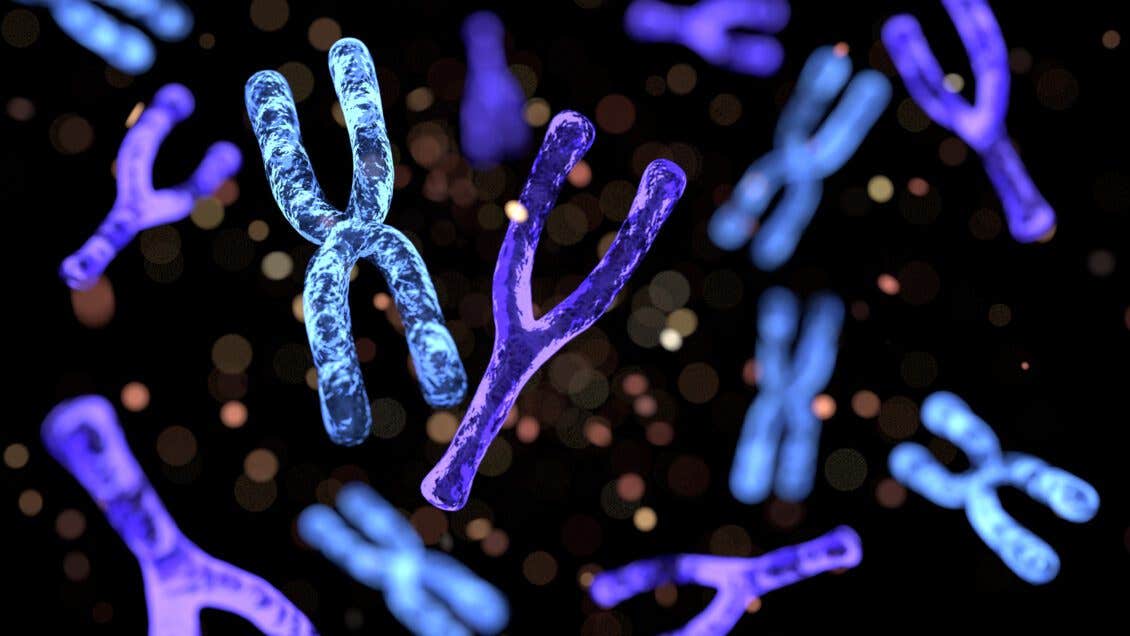Genetic discovery spotlights gender disparities in disease susceptibility
A groundbreaking achievement in human genetics has emerged with the successful decoding of the elusive human Y chromosome

[Nov. 25, 2022: JD Shavit, The Brighter Side of News]
A groundbreaking achievement in human genetics has emerged with the successful decoding of the elusive human Y chromosome. (CREDIT: Adobe Stock)
A groundbreaking achievement in human genetics has emerged with the successful decoding of the elusive human Y chromosome, marking a pivotal moment in scientific research. This accomplishment not only unravels the mysteries surrounding the smallest human chromosome but also promises to revolutionize the field of digestive disease research.
The decoding of the Y chromosome, coupled with advancements in third-generation sequencing technologies, stands poised to transform our comprehension of the genetic foundations of digestive disorders, offering a beacon of hope for more personalized and efficacious treatment strategies.
The human Y chromosome has long remained a subject of fascination and intrigue among geneticists due to its intricate, repetitive structure. However, recent strides in sequencing technologies have provided researchers with the tools necessary to unravel the complexities of this genetic region, shedding light on its role in sex determination and its potential impact on a range of diseases, including those afflicting the digestive system.
By accomplishing the complete sequencing of the Y chromosome, scientists have furnished themselves with a comprehensive reference point for identifying genetic variations that could contribute to digestive diseases. This invaluable information addresses a critical challenge known as the "missing heritability" problem, where the observed disease risk attributed to known genetic factors falls short of what statistical heritability estimates predict.
Related Stories
The significance of third-generation sequencing technologies cannot be overstated in this endeavor. These technologies, capable of producing long, uninterrupted DNA sequences, have emerged as essential tools in deciphering the intricate genomic landscapes of digestive diseases. They empower researchers to detect structural variations, such as copy number variations and inversions, which were previously beyond reach using older sequencing methods. These structural variations may hold the key to understanding disease susceptibility and progression.
The synergy between the complete sequencing of the Y chromosome and third-generation sequencing technologies holds tremendous promise for advancing the field of digestive disease research. By uncovering novel genetic variants and elucidating their functional roles, scientists can gain a deeper understanding of the mechanisms underpinning digestive disorders, ultimately leading to the development of more targeted and effective therapeutic interventions.
In addition to unraveling the genetic basis of digestive diseases, the complete decoding of the Y chromosome opens doors to exploring sex-specific genetic effects. Gender disparities in disease susceptibility and progression have long been documented in numerous digestive disorders, yet the genetic mechanisms responsible for these differences have remained largely enigmatic. The Y chromosome, with its distinct genetic content and expression patterns, may well play a pivotal role in deciphering these sex-specific disparities.
Gender disparities in disease susceptibility and progression have long been documented in numerous digestive disorders, yet the genetic mechanisms responsible for these differences have remained largely enigmatic. (CREDIT: Creative Commons)
As we peer into the future of digestive disease research, optimism abounds with the advent of complete Y chromosome sequencing and third-generation sequencing technologies. These groundbreaking developments hold the potential to overhaul our comprehension of digestive disorders, ultimately leading to the formulation of more personalized and effective treatment strategies that enhance patient outcomes.
The Decoding of the Human Y Chromosome: A Monumental Feat
The human Y chromosome, the smallest among the twenty-three human chromosomes, has long held a position of intrigue in the realm of genetics. Its complex, repetitive structure has stymied researchers for decades, leaving many questions unanswered regarding its function and significance. However, the tide began to turn with the advent of cutting-edge sequencing technologies, ushering in a new era of discovery.
Recent advancements in sequencing have allowed scientists to overcome the challenges posed by the Y chromosome's intricate composition. (CREDIT: NHGRI)
Recent advancements in sequencing have allowed scientists to overcome the challenges posed by the Y chromosome's intricate composition. The successful decoding of this enigmatic genetic entity represents a major milestone in human genetics. It is a feat that promises not only to broaden our knowledge of the Y chromosome's role in sex determination but also to illuminate its potential implications for various diseases, particularly those affecting the digestive system.
Unlocking the Genetic Secrets of Digestive Diseases
The completion of the Y chromosome sequence is a triumph that cannot be overstated, especially in the context of digestive disease research. This achievement provides a robust reference point for identifying genetic variations that may contribute to the development and progression of digestive disorders. It addresses a persistent conundrum known as the "missing heritability" problem, where the proportion of disease risk attributed to known genetic factors falls short of what is expected based on heritability estimates.
Third-generation sequencing technologies have emerged as indispensable tools in the pursuit of deciphering the complex genetic landscapes underpinning digestive diseases. Their unique ability to generate long, continuous DNA sequences allows researchers to detect structural variations that were previously inaccessible using older sequencing methods. These structural variations, including copy number variations and inversions, may hold vital clues to understanding why some individuals are more susceptible to digestive disorders than others.
The future of digestive disease research has never looked brighter than it does today, with the completion of Y chromosome sequencing and the continued advancement of third-generation sequencing technologies. These groundbreaking achievements offer a new dawn in our understanding of digestive disorders, promising the development of treatments tailored to individual genetic profiles, thereby enhancing patient outcomes.
Note: Materials provided above by ETH Zurich. Content may be edited for style and length.
Like these kind of feel good stories? Get the Brighter Side of News' newsletter.



